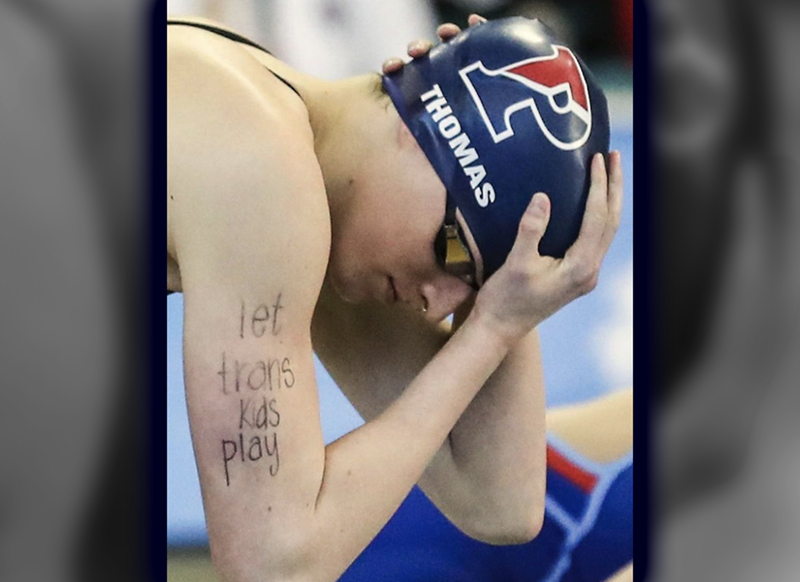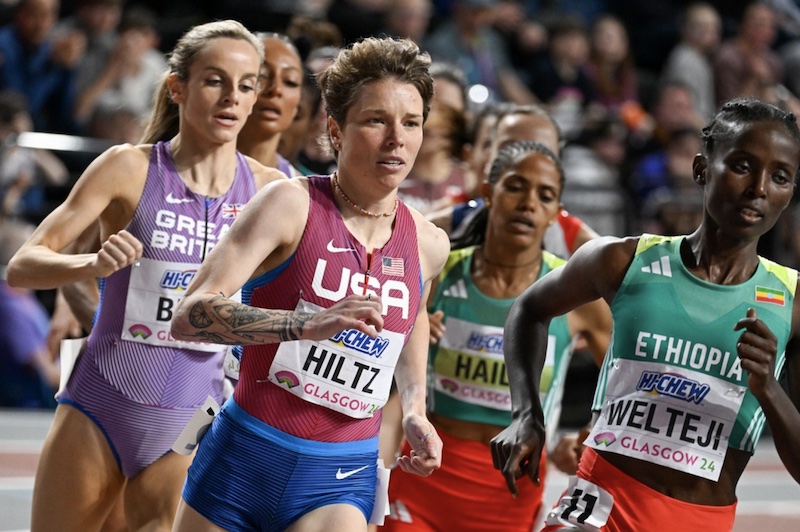Alaska Calls for Transgender Athlete Restrictions
The Board of Education calls for creating a girls' division and a separate open division for all other athletes, including transgender students.

The Alaska State Board of Education has unanimously approved a resolution calling on the state education department to prohibit transgender girls from competing on sports teams designated for females.
The resolution, approved last Thursday, recommends that the Alaska Department of Education and Early Development create two sports divisions — one for athletes assigned female at birth, and the other for all athletes, according to the Anchorage Daily News.
The resolution was a last-minute addition to the board’s agenda at the end of a three-day meeting in Juneau. All eight members of the board approved the resolution, while the board’s student adviser abstained.
“We’re making a statement of keeping girls’ sports safe and competitive and fair, that’s all,” board chair James Fields told the Daily News, echoing arguments made by opponents of transgender participation that transgender females possess biological differences that give them an unfair advantage over cisgender female athletes.
Billy Strickland, the director of the Alaska School Activities Association, said the resolution is close to a proposal floated by members of Republican Gov. Mike Dunleavy’s administration that would create three divisions: one for boys, one for girls, and a co-ed division that would allow transgender athletes.
But Strickland said there aren’t enough transgender athletes in the state to justify a third division, noting that he was only aware of one transgender athlete competing in the nine years he’s led the association.
As a result, creating a girls’ division and an open division, and allowing transgender athletes eligible to compete in the latter, is enough to accommodate the minority of student-athletes who identify as transgender.
The Matanuska-Susitna Borough School Board is the only board in the state with a policy restricting the eligibility of transgender student-athletes, according to Strickland. Such determinations have been left up to individual schools and districts, but most have not addressed the issue.
Further complicating the issue is that cisgender girls sometimes play alongside boys in physical sports like football or hockey if there is not enough interest to have a separate girls’ team.
According to The Associated Press, Dunleavy’s office released a statement asserting that only those assigned female at birth should be playing in female-designated sports.
“If a person who was born a male but feels out of place playing a sport in a league with boys only due to their gender identity, the solution isn’t to allow them to compete against girls, but to increase co-ed opportunities,” the statement said. “It’s time to seriously consider co-ed interscholastic sports so that all students can compete at their highest level.”
Dunleavy has previously proposed a bill to require all students to use only those bathrooms and locker rooms that match their assigned sex at birth.
That bill would also require parents of transgender or nonbinary-identifying students to provide written permission before the school adopts new names or pronouns to refer to their children.
Neither that bill, nor a separate one to create three divisions for K-12 sports — two single-sex and one co-ed — has been heard or voted upon by the legislature.
Any change to the current athlete eligibility policy would require the state to change its regulations. However, the legislature can revoke proposed regulations for any state agency or department.
The Alaska State Senate is currently governed by a bipartisan majority, whose leaders have said they wish to avoid any contentious social issues or other divisive topics, especially those involving LGBTQ rights or visibility.
State Sen. Löki Tobin (D-Anchorage), the chair of the Senate Education Committee, told the Alaska Beacon that the resolution’s last-minute addition to the board’s agenda took her by surprise. She believes the board may have violated a requirement to allow the public to weigh in on any resolutions before a vote.
“I’m a little flustered that I didn’t know about it,” she said of the resolution. “I am concerned that the process just was not followed, and that we weren’t able to provide our public comment on this issue.”
Tobin also believes that the resolution may infringe on the right to privacy as guaranteed by the Alaska Constitution. She voiced her support for transgender athletes who may be feeling under attack by state authorities, letting them know they have allies in positions of power.
“I hope they know that they have many advocates in state politics and in local politics who are here to celebrate them as they authentically are and who recognize their value and celebrate their individuality,” she said, “and will be vocal in our opposition to anything that might deny them their constitutionally protected rights.”
Support Metro Weekly’s Journalism
These are challenging times for news organizations. And yet it’s crucial we stay active and provide vital resources and information to both our local readers and the world. So won’t you please take a moment and consider supporting Metro Weekly with a membership? For as little as $5 a month, you can help ensure Metro Weekly magazine and MetroWeekly.com remain free, viable resources as we provide the best, most diverse, culturally-resonant LGBTQ coverage in both the D.C. region and around the world. Memberships come with exclusive perks and discounts, your own personal digital delivery of each week’s magazine (and an archive), access to our Member's Lounge when it launches this fall, and exclusive members-only items like Metro Weekly Membership Mugs and Tote Bags! Check out all our membership levels here and please join us today!


























You must be logged in to post a comment.